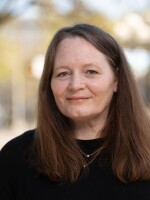Less than a month after its launch, membership in Oregon’s first-ever bipartisan arts and culture caucus has more than doubled, and includes lawmakers from Eugene and Springfield. It's now one of the largest bipartisan caucuses at the state Capitol, and there are high hopes for the group’s ability to keep support for arts and culture top of mind.
The crowd at last month’s kickoff event at the Elsinore theater in Salem cheered when emcee Jason McNeal Graham, Bend's creative laureate known as MOsley WOtta, rattled off the impact of arts and culture in Oregon.
"The arts and culture sector contributed an astounding $8 billion in 2020 to Oregon's economy, representing 60,994 jobs and a total compensation of $4.8 billion," announced Graham from the stage.
Nine legislators formed the caucus, which will push for arts funding. Already up for discussion are House Bills 2459 and 2498, which would direct $50 million in recovery funds, and $200 million in lottery funds, respectively, to arts and culture organizations across the state.
Eugene’s Hult Center for the Performing Arts could receive more than $400,000 in funding from one of the house bills. The Center's Marketing Director, Rich Hobby, told KLCC the arts caucus "is something that's been sorely needed.”
He said it helps create a unified effort within the legislature, where previously “there were plenty of little groups or things doing that," adding "now that we actually have a statewide effort, I think (it) is incredibly valuable."
February’s launch featured several performers, including pianists Hunter Noack and Pink Martini’s Thomas Lauderdale, who said in an interview recorded by the Oregon Arts Commission at the event that he thinks the arts can help bridge barriers.
"Concerts and art gatherings are places like sports, where people who don't agree politically can sit next to each other and experience each other in a different way without a political argument,” Lauderdale said.
Also speaking after the event, Rep. Rob Nosse, D-Portland, who is the caucus coordinator, explained his view of arts as a uniting force and as a universal need.
“These are the things that all of us as Oregonians as humans enjoy. That is just as important to our humanity as making sure we educate people and we take care of them when they're old or when they're sick,” Nosse said.
As the event closed, Nosse, posing with participants, challenged more of his colleagues to join the caucus.
“Any politician that's here that's not a member of the caucus. You should get up here and get in this photo because you're going to join the caucus,” he prodded.
Since then the caucus has since grown to include 23 members. Among them, Sen. James Manning, D-Eugene; Rep. John Lively, D-Springfield, Rep. David Gomberg, D-Otis, and Sen. Dick Anderson, R-Lincoln City. Anderson is one of three Republicans in the group.
Lively told KLCC there are three main priorities for the caucus.
"The first and most important priority is to raise awareness of the importance of arts and culture in Oregon and the impact ongoing investments have in ensuring every region of our state has a successful arts and culture sector," Lively said via email. "Secondly is to support near term state support to assist the organizations in this sector are able to recover from the effects of shutdowns during COVID. And finally, it is to start exploring the opportunities to increase funding for long term support by the State of Oregon."
For the caucus, financial stewardship for the arts is both a responsibility, and an opportunity. Just one example? According to the Oregon Cultural Trust, Oregon’s cultural nonprofits contribute $53 million dollars to local and state revenue.
While revenue streams and job creation are important, J.S. May, President of the Cultural Advocacy Coalition of Oregon noted that there are other reasons to nurture the arts and culture sector of the economy.
“Arts and culture, we’re the first responders to the soul. What we do is provide people with context for what's going on in a world that is more challenging than ever,” May said.
The arts and culture caucus intends to meet every three weeks.
Watch a recap of the launch event here.
The Hult Center for the Performing Arts is a KLCC underwriter.




